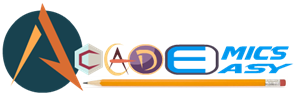If you’re looking to make a real impact in healthcare, an OTA degree might be the perfect fit.
Occupational Therapy Assistants (OTAs) play a crucial role in helping individuals regain their independence after illness or injury.
With an OTA degree, you’re not just stepping into a job; you’re stepping into a career filled with purpose.
What Exactly Is an OTA Degree?
An OTA degree is an educational program designed to prepare students to become Occupational Therapy Assistants.
It typically takes about two years to complete and combines classroom learning with hands-on clinical experience.
Through courses in anatomy, physiology, mental health, and therapeutic techniques, students gain the skills needed to support licensed occupational therapists.
Why Choose an OTA Degree?
Choosing an OTA degree opens doors to a dynamic and rewarding career.
Unlike traditional desk jobs, OTAs work directly with patients, helping them perform daily activities that many take for granted.
From assisting children with developmental delays to supporting seniors recovering from strokes, OTAs make a tangible difference.
If you’re curious about pursuing this path, check out this OTA degree to explore your options.
A Day in the Life of an OTA
Imagine starting your day by helping a young child improve their motor skills through play therapy.
In the afternoon, you might assist an elderly patient in relearning how to dress after surgery.
No two days are the same, which keeps the job engaging and meaningful.
I once met an OTA named Sarah who shared how rewarding it felt to see her patient, a stroke survivor, regain the ability to feed himself.
That moment wasn’t just life-changing for her patient—it was deeply fulfilling for her as well.
The Growing Demand for OTAs
The healthcare industry is rapidly evolving, and the demand for OTAs is on the rise.
According to the Bureau of Labor Statistics, employment for OTAs is projected to grow much faster than average over the next decade.
This growth is fueled by an aging population and an increased focus on rehabilitation and long-term care.
Skills You’ll Develop with an OTA Degree
An OTA degree doesn’t just teach you medical knowledge; it hones a variety of skills essential for patient care:
- Communication: Effectively interacting with patients, families, and healthcare teams.
- Empathy: Understanding and addressing the emotional needs of patients.
- Problem-Solving: Adapting treatment plans to meet individual goals.
- Technical Proficiency: Using therapeutic equipment and techniques with confidence.
Real-Life Impact: Stories from the Field
Consider Mark, an OTA who works in a rehabilitation center.
One of his patients was a young man recovering from a car accident.
Mark helped him regain his ability to write, a skill he needed to return to college.
The patient’s progress wasn’t just physical; it restored his confidence and independence.
These are the kinds of transformations OTAs witness every day.
Financial and Career Growth Opportunities
While the emotional rewards are significant, an OTA degree also offers strong financial incentives.
The median annual wage for OTAs is competitive, and opportunities for advancement are plentiful.
With additional certifications, many OTAs move into specialized roles or management positions within healthcare facilities.
How to Get Started
Starting your journey toward an OTA degree is straightforward.
Research accredited programs, meet the prerequisites and consider shadowing an OTA to gain firsthand insight.
Clinical placements during your education will also provide valuable real-world experience.
Final Thoughts
An OTA degree isn’t just a qualification; it’s a gateway to a fulfilling career where you can genuinely make a difference.
Whether you’re passionate about helping children, veterans, or the elderly, this path offers endless opportunities to impact lives positively.
If you’re ready to stand out in the healthcare industry, pursuing an OTA degree might be your next best step.
